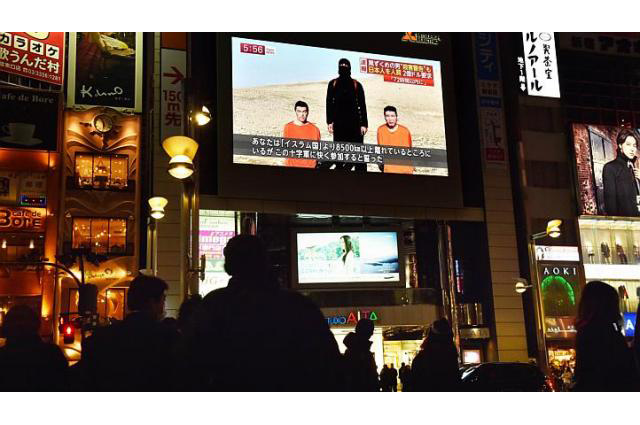The world may have learned that Kenji Goto and Haruna Yukawa were being held for a $200 million ransom by the Islamic State when the extremists posted a harrowing video of their Japanese hostages on Tuesday. But Goto’s wife already knew of the peril that befell the freelance journalist, after ISIS emailed her in December. Meanwhile, members of the Japanese media have begun to raise questions about the authenticity of the video itself.
Today The Japan Times reported that government sources say Goto’s wife corresponded with a then unidentified party demanding a ransom for his release last month, although the threats against his life had yet to be made. The article added that Goto met his soon-to-be fellow captive this past spring after hearing that Yukawa, a private security contractor, was being temporarily held by the Free Syrian Army, a rebel faction waging civil war against President Bashar Assad’s regime. Goto is said to have kept in touch with Yukawa after helping the contractor with that initial predicament. When Yukawa was rumored to have been taken captive again in August, Goto journeyed to northern Syria to once again offer his assistance and “confront the extremists over their actions.”
Tuesday’s video shows the pair bound and kneeling in front of a masked man brandishing a knife and speaking with a British accent as the extremist accused the Japanese government of funding the forces fighting against the Islamic State, according to a separate Japan Times article. The author of that piece noted that the ransom for Goto and Yukawa equaled the $200 million aid package that Japanese Prime Minister Shinzo Abe pledged to “aid refugees displaced by conflict with the militants.”
According to the The Japan Times, France and the United States have already pledged to secure the hostages’ release, while King Abdullah II of Jordan offered to gather intelligence and offer other any other resources that would assist in the effort. Onlookers are hopeful that those measures will be sufficient to help Goto and Yukawa before the 72 hour deadline given by ISIS, in which the captor say they will execute their hostages.
Adding another wrinkle to the story, members of the Japanese media have cast some doubt on the authenticity of the video itself. An article in The Straits Times explains that “government analysts” have noticed small details in the video—including apparent discrepancies in shadows and the way in which their captives’ clothing moves and an absence of a reaction by the two captives when the hooded figure brandishes his knife over their heads—that may mean that the video is a composite.
—Kyle Mullin
Image: AFP via Straits Times









